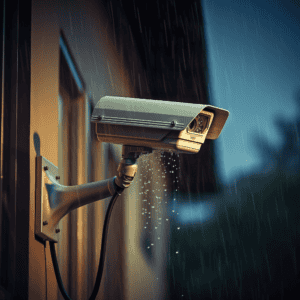The thought of someone breaking into your home can be terrifying, but being prepared and knowing how to react can significantly increase your chances of survival and protect yourself and your loved ones.
In this article, we will provide you with essential tips and strategies to help you stay safe in the event of a home invasion. By following these guidelines and staying calm under pressure, you can enhance your personal security and mitigate potential risks.
- Understanding the Threat of Home Invasions
Home invasions are a distressing and dangerous situation where criminals forcibly enter your home with the intent to commit theft, violence, or other crimes. Understanding the potential risks and consequences can help you prepare and respond effectively if faced with such a situation.
- Maintaining Home Security: Prevention is Key
The first line of defense against home invasions is a robust home security system. Install quality locks on doors and windows, and consider adding security cameras and an alarm system. Keep your property well-lit, trim shrubs near windows, and avoid displaying signs of absence when you’re away. By making your home a less appealing target, you can deter potential intruders.
- Creating a Home Security Plan: Preparedness Matters
Developing a comprehensive home security plan is essential. Establish escape routes and rendezvous points for family members. Practice drills to ensure everyone knows what to do in an emergency. Designate a safe room where you can seek refuge and wait for help. Being prepared and familiar with your plan can minimize confusion and panic during a home invasion.
- Safe Room Setup: Your Sanctuary in an Emergency
A safe room is a secure area within your home where you can seek protection during a home invasion. Choose a room with a sturdy door, minimal windows, and a reliable communication device. Stock the safe room with emergency supplies such as water, non-perishable food, a first aid kit, and a flashlight. Ensure everyone in the household knows how to access and use the safe room.
- Reacting to a Home Invasion: Stay Calm and Take Action
If someone breaks into your home, staying calm is crucial. Your immediate priority should be to ensure your safety and the safety of your loved ones. Find a safe location and avoid confronting the intruder directly. If possible, retreat to your safe room and alert the authorities discreetly. Avoid making any sudden movements or threatening actions that could escalate the situation.
- Self-Defense Techniques: Protecting Yourself and Others
In situations where escape or retreat is not possible, knowing basic self-defense techniques can be invaluable. Take self-defense classes to learn effective strategies for protecting yourself and others. Focus on techniques that emphasize disengagement, evasion, and creating opportunities to escape. Remember, your primary goal is to survive and minimize harm.
- Communication and Contacting Authorities: Call for Help
Contacting the authorities promptly is essential during a home invasion. If you have access to a phone, discreetly dial the emergency number, providing as much information as possible without revealing your location. If you don’t have access to a phone, consider using a hidden panic button or a mobile device with emergency call capabilities. Stay on the line with the operator, following their instructions.
- Cooperating with Intruders: Assessing the Situation
In some instances, cooperating with intruders may be the safest option. Assess the situation and evaluate the intentions of the intruders. If compliance can reduce the risk of harm, consider following their demands while remaining vigilant and attentive to details. Your ultimate goal is to survive the encounter and gather information that can assist the authorities later.
- After the Home Invasion: Recovery and Support
After a home invasion, it is crucial to prioritize your physical and emotional well-being. Seek medical attention; if necessary, even for seemingly minor injuries. Reach out to support networks such as friends, family, or counselors to help cope with any trauma experienced during the event. Assess your home’s security vulnerabilities and make necessary improvements to prevent future incidents.
- Conclusion
Facing a home invasion is a terrifying ordeal, but with preparedness, presence of mind, and proactive measures, you can increase your chances of survival and minimize potential harm. Maintain home security, create a comprehensive plan, and be prepared to react calmly and decisively in the face of danger. By prioritizing your safety and following these guidelines, you can protect yourself and your loved ones in times of crisis.



